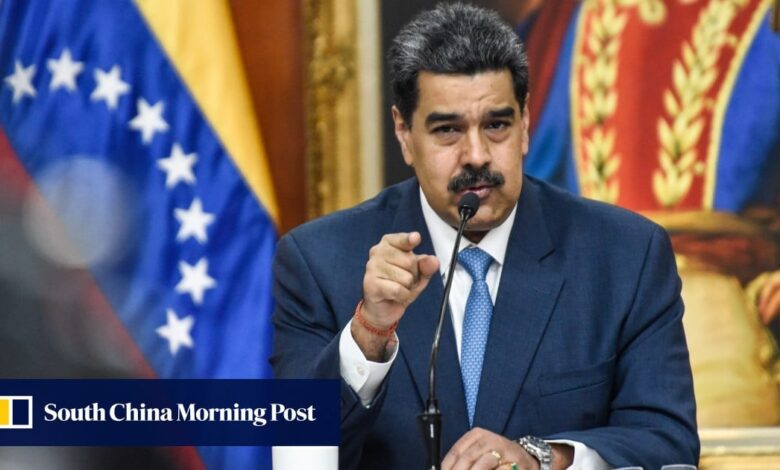Venezuela’s President Maduro seeks Chinese money to revive country’s oil sector

[ad_1]
Venezuela’s President Maduro seeks Chinese money to revive country’s oil sector
Venezuela has dispatched some of its top officials to China to seek energy investments to boost the economy ahead of next year’s presidential election.
Vice-president Delcy Rodríguez and oil minister Pedro Tellechea arrived in Shanghai on Tuesday as part of the most senior Venezuelan delegation to visit the China in five years. The pair are discussing possible joint ventures between China and state-run Petroleos de Venezuela SA, according to two people with direct knowledge of the matter.
Venezuela’s Maduro visits Brazil in blow to US strategy of isolation
Venezuela’s Maduro visits Brazil in blow to US strategy of isolation
Beijing and Caracas are strengthening ties against a backdrop of intensifying US-China rivalry across the region. The visit comes as the administration of US President Joe Biden is seeking to engage Venezuelan officials in talks to lift sanctions in exchange for allowing fair elections next year.
Venezuela’s oil ministry has been working closely with China National Petroleum Corp’s (CNPC) officials on a renewed conduit that would cut out middlemen and allow them to ship crude directly, Minister Tellechea said in May. CNPC is currently producing 80,000 barrels a day, half of what it used to pump in 2015, according to data compiled by Bloomberg.
China became a key lender to Venezuela in 2007, when it first provided funds for infrastructure and oil projects under late president Hugo Chavez. Public data indicate that Beijing lent upwards of US$60 billion in oil-backed loans through state-run banks through 2015, reaching a level of diplomatic and financial investment unmatched elsewhere in Latin America.

[ad_2]
Source link





